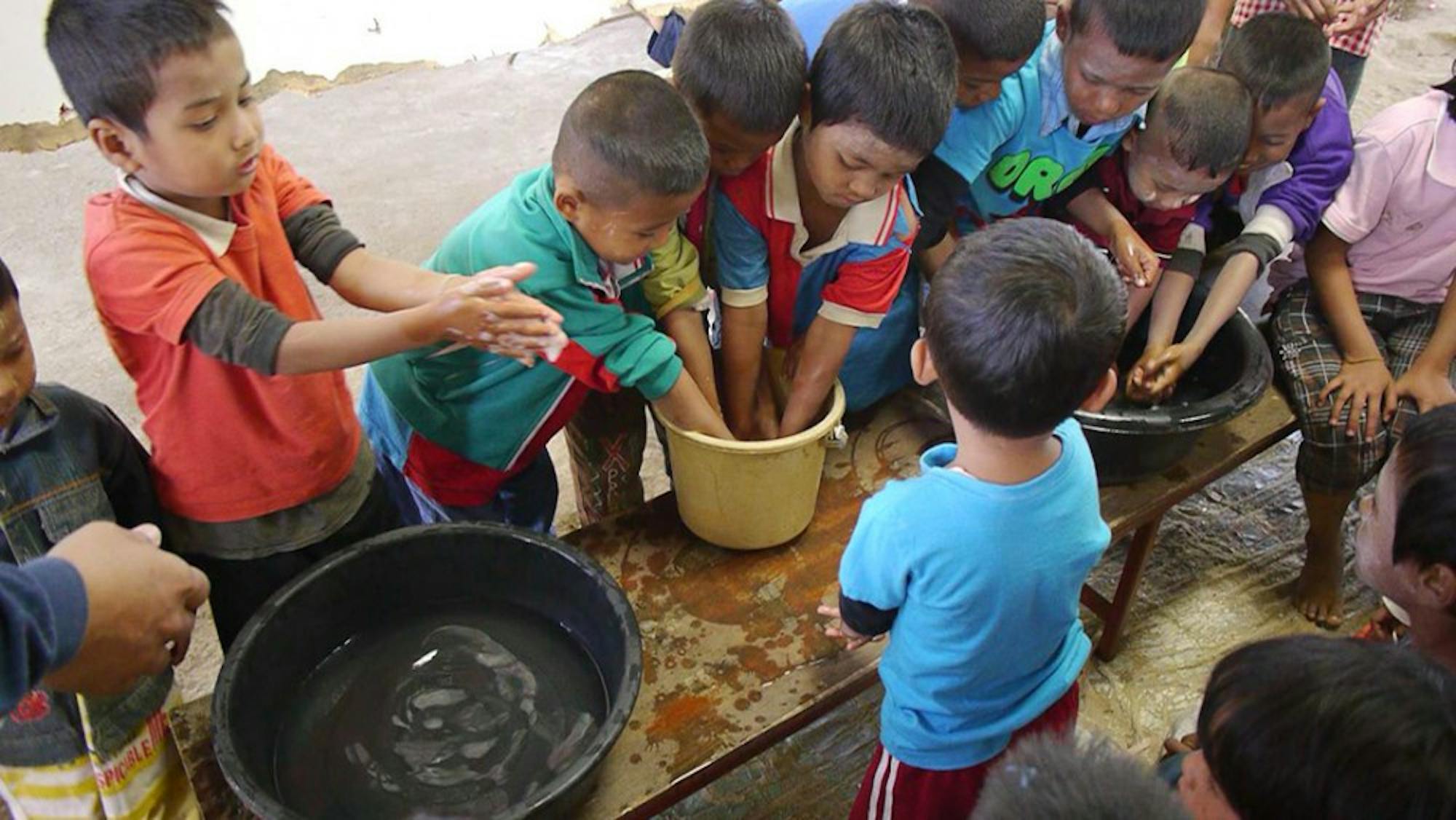For Sydney Kamen ’19, the model of her nonprofit So Others Are Protected, which turns recycled soaps from hotels into new bars of soap and distributes them to under-resourced communities, has always been “win-win-win.”
SOAP’s goal to reduce waste and provide a sustainable source of sanitation has benefited the environment, under-resourced communities and the economy, Kamen said.
During a service trip to Thailand during her freshman year in high school, Kamen said she was exposed to the lived realities of a majority of the world that did not match her standard of living in Washington, D.C. According to Kamen, this experience inspired her to establish SOAP.
“Having grown up with the privilege of taking my constant access to sanitation for granted and living in an area where a child’s death before the age of 5 due to diarrhea or respiratory infection was nonexistent, my exposure to this reality ... blew my mind, she said.”
Since its founding in 2012, SOAP has recycled soap from 13 different hotels and distributed it to 14 communities in India, Kenya, Myanmar, Rwanda, Myanmar, Thailand and Uganda.
Kamen said she works “as hands off as possible” to make the entire initiative sustainable.
“[The program] is really run by the communities,” Kamen said. “My priority is the sustainable nature of the program.”
Kamen said an essential aspect of SOAP is providing local solutions to local problems, rather than having outsiders try to solve the problems for them.
She added that she plans to expand SOAP in the near future through building new partnerships with communities and hotels. The nonprofit has recently launched a new effort to integrate sexual and reproductive health programming into its initiative.
“[The soap-making platform] is a very non-controversial, all-inclusive program, and so we’ve had partner communities build on that platform and use that to bring women together to talk about other issues and health — not just sanitation and hygiene but sexual and reproductive health,” Kamen said. “My hope is that communities will take it in whatever direction they need.”
Kamen said the geography courses she took at the College helped her expand SOAP, furthering her knowledge about development and humanitarianism.
She added that it is fascinating to observe what she has learned in the classroom through personal exchanges with people from under-resourced communities that SOAP has helped.
Kamen said it is important to remain humble while also realizing that “you don’t need a fancy degree to make a difference.”
“It’s something as simple as a small glob of glycerin,” Kamen said.
Geisel School of Medicine professor and associate dean for global health Lisa Adams, who taught Kamen as a geography professor, said it is important for students not just to learn information to pass the quiz or write a paper but also to have a deeper understanding of the concepts and materials like Kamen.
“It’s about the practical application — what do [the concepts] look like in real life in the field and how does this play out,” Adams said.
Environmental studies professor Melody Burkins, associate director for programs and research at the John Sloan Dickey Center for International Understanding, said she advised Kamen on SOAP and came to appreciate Kamen’s dedication to and enthusiasm about the initiative. She taught Kamen in the class, “The Practice of Science Policy and Diplomacy,” which focuses on how evidence in science informs policy to reshape how they work in the real world.
Kamen said she was raised with the notion, “if you see something that makes you think ‘someone should do something’ or ‘someone should say something,’ you are expected to do or say that something.”
“I think it takes a lot of courage to really do that,” Kamen said. “I can’t necessarily say I’ve always been that person. But I would challenge my peers, in one way or another, to find that courage to see that someone, to say that something or do that something.”
Grace is a freshman from Boston, MA. She plans on majoring in Economics and Neuroscience at Dartmouth. Grace joined the D because of her love of writing, and an interest in journalism and politics. In her free time, Grace loves to play tennis, ski, and go hiking.




